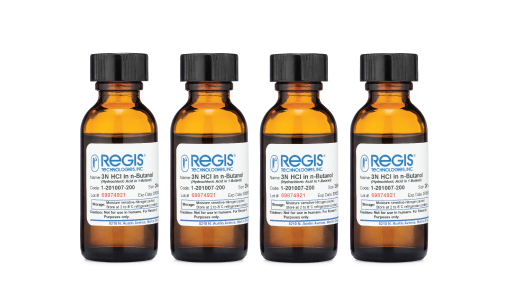Alkylation Reagents
As with other derivatization reagents, alkylation reagents reduce molecular polarity by replacing active hydrogens with an alkyl group. These reagents are used to modify compounds with acidic hydrogens, such as carboxylic acids and phenols. Akylation reagents can be used alone to form esters, ethers, and amides or they can be used in conjunction with acylation or silylation reagents. A two-step approach is commonly used to derivatize amino acids, where multiple functional groups on these compounds may necessitate protection during derivatization.
Esterification, which is the reaction of an acid with an alcohol in the presence of a catalyst to form an ester, is the most popular method of alkylation. Alkyl esters are stable, can be formed quickly, and by altering the length of the substituted alkyl group, retention of the derivative can be varied. In addition to the formation of esters, alkylation reagents can be used in extraction procedures where biological matrices are present.
Connect with a member of our sales team to request a free sample or discuss custom sizes.
Connect with a member of our sales team to request a free sample or to request a quote. To place an order online, click on the button below.

